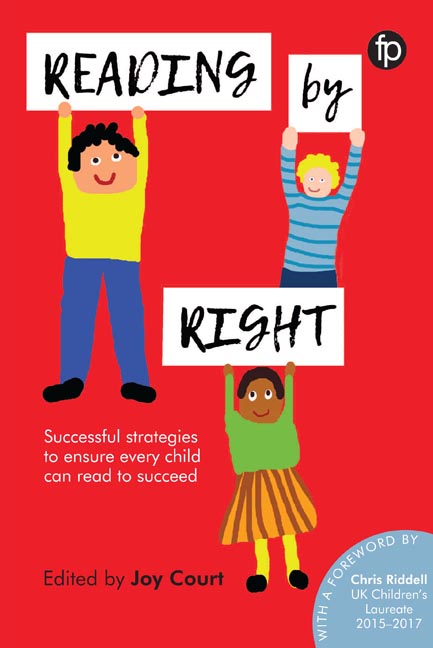Book contents
- Frontmatter
- Dedication
- Contents
- List of figures, boxes, case studies and appendices
- Foreword
- Contributors
- Introduction
- 1 Supporting every child to read
- 2 Listening to their voices: what research tells us about readers
- 3 Becoming a reluctant reader
- 4 Reading Club: a case study from Finland
- 5 Trained reading helpers: Beanstalk's magic ingredient
- 6 Let all children experience the joy of reading: promoting children's reading in Korea
- 7 Reflecting readers: ensuring that no one is excluded
- 8 Pulling in reluctant readers: strategies for school librarians
- 9 Not just for the avid reader: inclusive Carnegie and Kate Greenaway shadowing
- 10 Listen up! How audiobooks support literacy
- 11 Reading the future
- Index
3 - Becoming a reluctant reader
Published online by Cambridge University Press: 08 June 2018
- Frontmatter
- Dedication
- Contents
- List of figures, boxes, case studies and appendices
- Foreword
- Contributors
- Introduction
- 1 Supporting every child to read
- 2 Listening to their voices: what research tells us about readers
- 3 Becoming a reluctant reader
- 4 Reading Club: a case study from Finland
- 5 Trained reading helpers: Beanstalk's magic ingredient
- 6 Let all children experience the joy of reading: promoting children's reading in Korea
- 7 Reflecting readers: ensuring that no one is excluded
- 8 Pulling in reluctant readers: strategies for school librarians
- 9 Not just for the avid reader: inclusive Carnegie and Kate Greenaway shadowing
- 10 Listen up! How audiobooks support literacy
- 11 Reading the future
- Index
Summary
I thought books were boring and I thought reading was too. I used to read to keep the teacher happy.
Introduction
No child is born a reluctant reader. Ten year old Zarenu, who wrote the statement above, had somehow become reluctant to read over his five years of schooling. Between 1992 and 1994, Zarenu and his friends helped me with a research project into why children did not like to read. Comments by others included:
I hated getting things wrong. I wished I could read it. It made me feel a bit nervous because I might be the only one who could not read properly. (Charlotte)
Books are boring. I felt alone – that no one could help me. (Joseph)
Just before these remarks were made, I had started in my new post as Director of INSET for the Reading and Language Information Centre (RALIC) at the University of Reading. As part of that role I was expected to do research into literacy learning. I knew what I wanted to research; it was a phenomenon I had seen in every class I taught – reluctance to read. I was not interested in the packages of materials promoted as ‘ideal for reluctant readers’, nor did I subscribe wholeheartedly to the then current trend of blaming television and new technology for youngsters’ lack of interest in books. Some pupils seemed to have lost interest in books of all kinds. I wanted to ask them why but there was never an opportunity to do that. As a researcher I could arrange to talk in confidence to as many youngsters as were willing to do so. Zarenu and his classmates were among many other children and teenagers who contributed to a two-year project which I hoped would help me to tackle this particular professional issue.
Teachers and librarians are always concerned about youngsters who have difficulty learning to read. In some ways, even more concerning are those students who, despite the ability to do so, are unwilling to read. These are the reluctant readers, who find no pleasure in books and thus lack any incentive to read. The concerns of ‘literacy professionals’ reflect those of society in general, as life can be very uncomfortable for anyone who cannot read.
- Type
- Chapter
- Information
- Reading by RightSuccessful strategies to ensure every child can read to succeed, pp. 33 - 50Publisher: FacetPrint publication year: 2017



